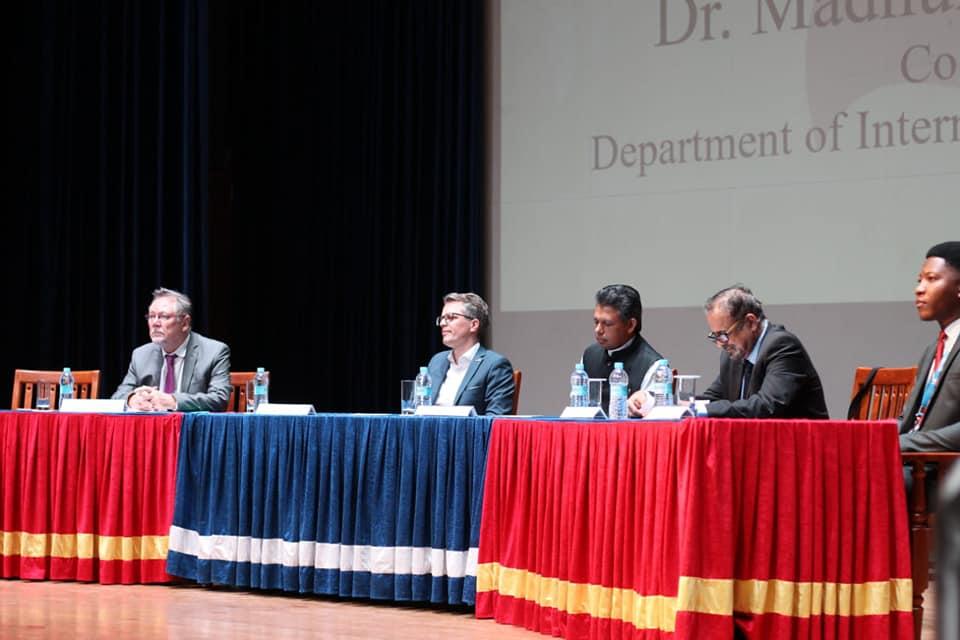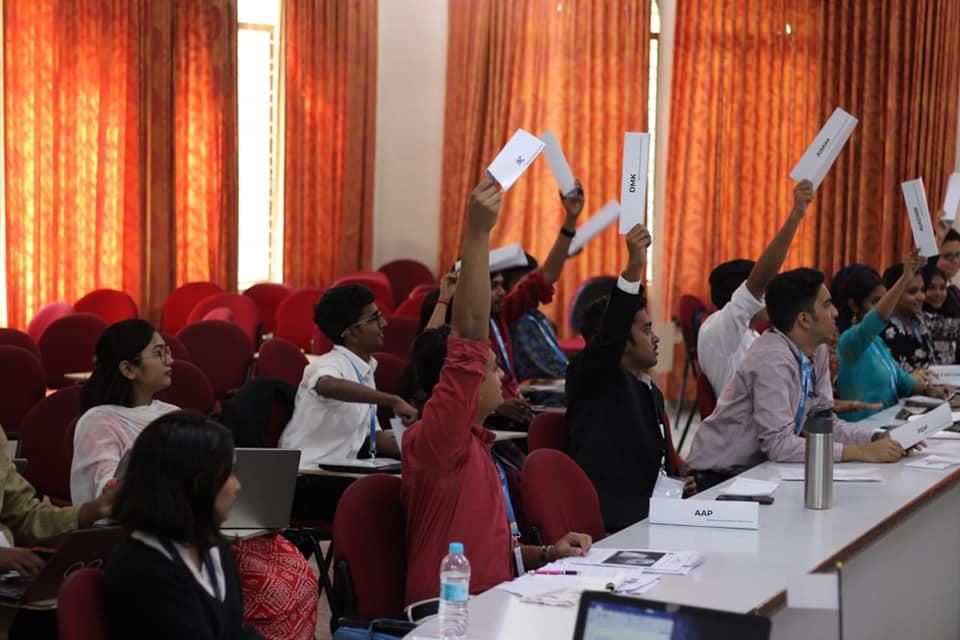The event started with an invocation dance, which was followed by the lighting of the lamp and inauguration by Mr. Karl Philipp Ehlerding, Deputy Consul General of German Consulate General in Bengaluru, Mr. Peter Rimmele, Resident Representative India of Konrad Adenauer Stiftung, Dr. Fr. Jose CC, Pro Vice Chancellor of Christ (Deemed to be) University, Mr. Pankaj Madan of the India Office of Konrad Adenauer Stiftung, Dr. Madhumati Deshpande, Coordinator of the Department of International Studies and History of Christ (Deemed to be) University and Mr. Preston Jowa, Secretary General of the IR MUN 2020.
The IR MUN aimed at nurturing young minds, pursuing graduation and post-graduation, especially in International Relations, who congregated from various parts of the country, for cooperation and coordination which are the key essentials for the creation of a peaceful global future. IR MUN focused on four such relevant and important committees of the Model United Nations, which included:
- United Nations Security Council (UNSC)
- Continuous Crisis Committee (CCC)
- General Assembly (UNGA DISEC)
- United Nations Human Rights Council (UNHRC)
plus India-centric All India Political Party Meet (AIPPM)
Each committee had a predefined agenda.
The UNSC deliberated wonderfully on the use of Lethal Autonomous Weapons in the Middle East. The committee had various motions for the moderated caucus including- definition of Lethal Autonomous Weapons (LAWs), effect of LAWs on civilian deaths, discussions on Artificial Intelligence and Cyber warfare, autonomous offensive & defensive systems, among others.
The CCC deliberated on various issues and crises situation including the prevailing cases of Coronavirus.
The delegates of DISEC discussed the political situation in Yemen with special emphasis on the foreign influence in the region.
The delegates of UNHRC diligently provided excellent speeches (in their GSL - General Speakers List) and points of information that enriched the debate regarding the repatriation of the refugees with special emphasis in the MENA (Middle-East North Africa) region.
The AIPPM delegates were enthusiastic and determined and passionately debated on the topic "One Nation, One Election". There was never a dull moment in this committee room.
Through this activity, the students got involved in global diplomacy and came away with a much deeper understanding of the topics they delved into. During the conference, the students articulated the changes they want to see, in their resolutions. The interactions were not only insightful and interesting but also had enough food for thought and intellectual stimulus whilst the research by some delegates was impeccable.
The two-day programme concluded with the valedictory ceremony, during which the chair and co-chair of each committee briefed about their discussions and declared the awards for the best delegates and high commendation awards.
The event could be summed as engaging, productive and an enriching experience.






